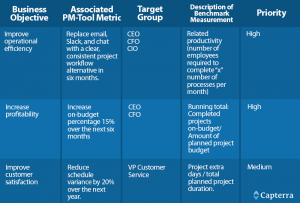Tips To Help Retirees Invest in Stocks

Many would say that stocks are fit only for the young and daring because of the risks involved, and thus, those planning for retirement must stay away from stocks due to their unpredictable nature. However, it is a misconception because equities are the asset classes that can help all investors, including retirees, outperform inflation in the long term.
Historically, the long-term return from equities is more than any other asset class, averaging 10% per year since 1926. So, if we combine this data with wise investing, stocks become far more appealing than any other long-term investment instrument.
So, you now know that equities are an excellent investment for investors of all ages, but as mentioned above, you need wise investing as well to ensure stocks help you grow your retirement corpus. In this article, we will share some tips to help retirees invest in stocks.
Tips To Help Retirees Invest In Stocks
Here are some tips to help retirees invest in stocks:
Focus On Companies Growing Consistently And Having Quality Management
Those nearing retirement would understandably have less time and a low-risk appetite. Thus, they should invest in companies that are growing consistently, as well as have quality management. Retirees can easily find such stocks in the FMCG (fast-moving consumer goods), pharmaceutical and IT sectors.
Companies in these sectors aren’t impacted as much by market trends, as well as witness earnings growth at a fast pace. Moreover, retirees should consider large-cap stocks in these sectors.
Dividends Are Good
It is always recommended that retirees invest in stocks that have a solid track record of offering dividends. There have been times when the dividend yield equals or is even more than the yield from real estate.
Retirees can look at dividend aristocrats, which are the companies that have increased dividend payout over the last 25 years. Investing in dividend-paying stocks would also allow retirees to lower some risks related to investing in equities.
Focus On Mature Companies
Young investors can bet on new companies and startups as they have a lot of time before they retire. Retirees or those nearing retirement, however, should focus on mature companies. Selecting mature companies is important because such companies have already proven their business model and enjoy the confidence of investors.
Moreover, the focus of retirees should be on mature companies with quality management, ranking high on corporate governance, history of paying dividends, as well those delivering consistent returns. Again, the focus should be on large-cap stocks, while small cap stocks should be avoided.
Taxation Laws
Before investing in stocks, it is extremely important for retirees to understand all related taxation laws. Specifically, retirees should know about short- and long-term capital gains taxes and the scenarios of when these taxes apply. Moreover, retirees should also have information on the taxes on dividends and any other taxes that may apply.
Direct Or Indirect Exposure
Retirees or those nearing retirement should also give a thought to whether they want to invest directly in the stocks or gain indirect exposure. Indirect exposure means investing through mutual funds. This option is better as it saves investors time because they don’t need to personally track the stocks.
On the other hand, those preferring direct exposure need to give more time to their portfolio. However, they could make more profits than those going for indirect exposure. And, as said above, such investors (those preferring direct exposure) should focus on mature companies that are growing consistently.
If you are taking direct exposure, then it is also important that you invest in sectors that you understand. This would allow you to make better and more informed decisions.
How Much To Invest
The above tips to help retirees invest in stocks should help retirees, or those nearing retirement, pick stocks that meet their investment objectives. There is, however, another question that troubles most retirees, and it is – how much should I invest in stocks?
The amount of money retirees should invest in stocks should depend on their risk appetite and investing horizon. It is, however, recommended that retirees invest 20-25% of their portfolio in stocks, and if their retirement corpus and risk appetite permit, they can also invest up to 50-55% in equity.
Whatever amount retirees invest in equities, they must practice due diligence thoroughly. If retirees don’t have enough knowledge, then they shouldn’t hesitate to get the help of a registered investment advisor.
Moreover, before deciding how much to invest in stocks, retirees must ensure they have an emergency corpus. This corpus should have an amount equaling around three years of living expenses in liquid instruments.
Additionally, retirees must also have health insurance before they start investing in stocks. It is no secret that stock markets are volatile in the short term. So, there are chances that some of their capital gets eroded if the broader market isn’t performing well. In such a scenario, medical insurance would help to meet emergencies where funds are needed at short notice.
Published First on ValueWalk. Read Here.
Featured Image Credit: Photo by Cottonbro Studio; Pexels; Thank you!
The post Tips To Help Retirees Invest in Stocks appeared first on ReadWrite.
(8)
Report Post







